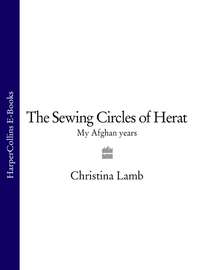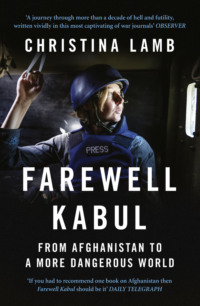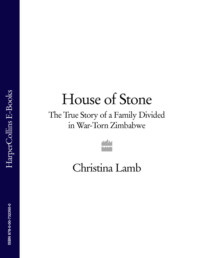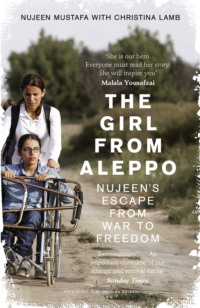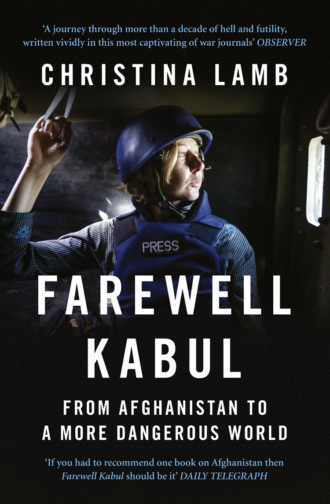
Полная версия
Farewell Kabul: From Afghanistan To A More Dangerous World
‘I got really frustrated and mad,’ said Amerine. ‘We had no trucks of our own, and I’d been warned by one of the CIA guys to make sure we took the car keys from the guerrillas, but I hadn’t done that.’ The Americans had no choice but to jump in the fleeing trucks. ‘It felt like we were stealing defeat from the jaws of victory,’ he recalled. ‘In that moment we lost Tarin Kowt. People would be slaughtered, and there wasn’t anything I could do. I even thought about shooting one of the drivers to take a truck, but if I shot one of our guerrillas they’d never trust us.’
Amerine thought they would just have to grab Karzai from the town and leave. However, when they got back and told him what had happened, Karzai managed to get them two trucks and they drove back. There was not enough time to return to the bluff, but they got to the edge of town and started calling in airstrikes, having figured out that the Taliban were advancing along three paths from the valley in a three-pronged attack.
Word went out at US Central Command that a lone team of Green Berets was under attack from hundreds of Taliban, and F14s and F18s were scrambled from all over the country. ‘Every available US aircraft with bombs was in Tarin Kowt to help us,’ said Amerine. ‘It was this incredible feeling that the might of the military was coming to assist. They knew that our lives were pretty much in their hands.’
One of the pilots looked down from overhead and radioed, ‘Where are the friendly forces?’
‘OK, so see the two trucks …’ replied Amerine.
‘That’s it?’ the pilot asked incredulously.
Despite the massive display of air power the bombs could not wipe out all the Taliban, and some made it into town. ‘What really pushed it over the edge was the people of the town came out with guns,’ said Amerine. ‘At first we were shooing them away, but then we realised they were actually there to fight with us. We killed hundreds of Taliban that day.’
With Tarin Kowt won, over the next three weeks Amerine’s team began moving south towards Kandahar, which was still firmly in Taliban hands. They set up a headquarters on the way at a place called Damana. From there, on 3 December they launched an attack to capture the town of Shawali Kowt and its hill, which overlooked a vital bridge over the Argandab River towards Kandahar. There was intense fighting, and the Taliban counterattacked. One of Amerine’s men, Wes, was shot in the neck though luckily the bullet missed an artery. Eventually the Americans fought them off, and by the next day had taken the hill, giving them control of the bridge.
Yet when Amerine radioed the news to his headquarters, he was ordered to give up the hill. ‘It was a complete foul-up,’ he said. ‘We’d had two days of fighting and no sleep at all. I was very angry.’ The Afghans with them were baffled as they retreated, and with no interpreter it was impossible for Amerine to explain.
‘What seems to have happened is that up till then in the war there were no American casualties in battle [just one from an accidental airstrike in the north],’ he said. ‘At that point fighting up front with the guerrillas wasn’t the norm. So when I radioed that one of my men was shot, there was this shock – “What are your men doing, putting themselves in harm’s way?” I think someone at some level thought there must be a safe area we could be operating from, but they didn’t understand – sorry, we are behind enemy lines, and the guerrillas won’t fight unless we are up front.’
The next day they were ordered to retake the hill, which they did, christening it the Alamo.
While Amerine and Karzai were battling it out with the Taliban in southern Afghanistan, 3,000 miles away in Bonn a group of twenty-five Afghans were huddled in a castle on a wooded hill overlooking the Rhine, trying to form a government. Chairing the meeting was Lakhdar Brahimi, the veteran diplomat and former Algerian Foreign Minister who was the United Nations’ Special Envoy for Afghanistan. He had thought the Taliban would hold on till spring, but then cities started falling like dominoes – Mazar-i-Sharif, Kabul, Herat – so the Northern Alliance controlled more than half the country. This would not have been acceptable to Afghanistan’s Pashtun majority, or indeed its neighbour Pakistan, so there was a sudden rush to come up with a more representative interim administration before it was too late.
The White House wanted to do this at Bagram airbase, but Brahimi insisted it needed to be neutral territory. The Germans offered their official guesthouse, the Petersberg Hotel, a site laden with history. It was there in 1949 that the three occupying powers, Britain, France and the US, had signed the agreement paving the way to the birth of the German Federal Republic.
The aim of the Bonn Conference was to form an interim administration which would run the country for three to six months until a loya jirga, a traditional gathering of elders, could be held to decide Afghanistan’s future. There were four delegations – the main ones being the Northern Alliance (including representatives from General Dostum and Ismael Khan) and the Rome group (royalists loyal to the ex-king, Zahir Shah, to which Karzai belonged), then two smaller groups: the Cyprus group (intellectuals thought to have ties with Iran) and the Peshawar group (including the powerful Gilani family). No Taliban were invited, for this was a conference of victors – something that would be rued later. Most of the Afghans were dressed in suits, and aside from the Northern Alliance, many were émigrés, well-educated and Westernised. One of the few in a turban was Pacha Khan Zadran, a warlord. The meeting was opened on 27 November by German Foreign Minister Joschka Fischer, and tasked with producing a government within a week. That was the deadline because the hotel was then booked for a conference of dentists.
Even without the Taliban, getting an agreement was no easy task. The Northern Alliance felt that they should run the country having taken Kabul, and they resented being outnumbered in Bonn. In fact back in Kabul, their leader, Professor Rabbani, had already moved into the presidential palace. The Pashtuns, as Afghanistan’s majority tribe, insisted they should run the government, and were highly suspicious of the Northern Alliance.
As usual in Afghanistan, the situation was complicated by outside interests. Also present in the hotel, though not inside the conference room, were a number of international observers from countries in the region or involved in the conflict, including the US, the UK, Iran, Russia, India, Pakistan, Saudi Arabia and Turkey. The atmosphere was not helped by the fact the meeting was being held during Ramadan, the holy month of fasting, during which Muslims cannot eat in the hours of daylight.
The Americans had sent James Dobbins, a former US Ambassador who had been appointed envoy to the Afghan resistance. A veteran of international conferences that were fuelled by fine food and plentiful wine, Dobbins wondered how this one would work with everyone sober, hungry and tired. Before reaching Bonn he had travelled to Tampa, Florida, to meet General Franks, and had heard the name Hamid Karzai for the first time. ‘They said we’ve got him in a helicopter – he’d been overrun by Taliban and was being flown out to Pakistan. They didn’t want another Abdul Haq incident.’3
A few days later in Islamabad Dobbins met the head of ISI, General Ehsan ul Haq, who was the first to suggest Karzai to him as future leader. ‘He wasn’t an American candidate,’ said Dobbins. ‘But then I went to Kabul, and Abdullah Abdullah also suggested him. I thought, gee, if ISI and the Northern Alliance are agreed, he must be something.’ In Bonn he found the Russians, Indians and Iran all suggested Karzai. ‘There was a clear consensus among international observers that he was the most broadly acceptable.’
The Americans had their man. The only problem was convincing the Afghans. Francesc Vendrell, the Deputy Special UN Envoy, describes the astonishment of the delegates when they sat around the big round table for the opening session and saw a microphone hanging down. They were even more surprised when they were told, ‘Now we will hear from someone inside Afghanistan.’ It was Karzai, speaking from Uruzgan. He told me later, ‘I was in a mud hut of two rooms and had a cold. I don’t know what I said. I never figured I’d be President.’ The line from the satellite phone was not great, but in a way the crackling added to the atmospherics, as he made an impassioned plea for people to set aside their differences for the sake of the nation. ‘This meeting is the path towards salvation,’ he said.
Dobbins thought the most capable figures were from the Northern Alliance, such as the leader of its delegation, Yunus Qanuni, a small, elegantly dressed man with a slight limp. But the Pashtuns would never accept one of them. One Pashtun delegate, Abdul Haq’s brother Haji Qadir, had already walked out, claiming Pashtuns were under-represented.
It was agreed then that the Rome group would choose the new leader. Supported by the Italians and some of the other Europeans, they really wanted the former King as head of state, but were persuaded by the Americans that he would not be acceptable. So they proposed Professor Abdul Sattar Siarat, an Islamic scholar who had been Justice Minister in the King’s last government thirty years earlier. When it came to a vote, Siarat was the clear winner with eleven, compared to two for Karzai.
Siarat was not a Pashtun but an Uzbek, who made up less than 10 per cent of the population, and Dobbins worried that he would not get people to rally round him, nor be able to command respect from Northern Alliance warlords. But while he found none of the Afghan delegates very enthusiastic about Siarat, no one would speak out. Even Qanuni said he could not object to Siarat, as he was a respected figure and his cousin by marriage.
In the end Francesc Vendrell had to call the King in Rome and persuade him to convey to his delegation that ‘rather than an Afghan of their choosing he was asking them for a Pashtun of their choosing’.4 Siarat was so unhappy about the decision that he locked himself in his room, while another of their delegation, Hedayat Amin Arsala, walked out.
The chairman of the conference, Asadullah Wasifi, was furious, even though Karzai was his nephew and had studied with his son Izzatullah in Simla. ‘We elected Siarat but the Americans told me, “No, we want to bring a Pashtun.” I asked, “What kind of democracy is that, where we elect the man you want?” Then Khalilzad came to me and said, “What’s the problem? He’s your brother’s son!” I said, “Yes, he is, that’s why I know he won’t be able to run the country.”5
He refused to sign the document, pointing out that Karzai had never run anything. The only post he had ever held was as Deputy Foreign Minister in the ill-fated mujaheddin government which took power in 1992 after ousting the communists then quickly started fighting each other. Karzai only lasted eighteen months before having to flee to Pakistan, helped by Hekmatyar, putting him in the warlord’s debt.
When Karzai later asked Wasifi why he hadn’t accepted him, he replied, ‘Afghanistan is a big problem and you’re too small.’
The next challenge was persuading Rabbani to step aside. The Northern Alliance leader refused to allow his delegation to submit names of candidates for posts in the interim administration. Instead he called a press conference in Kabul, and announced that Afghanistan should hold direct elections for an interim council rather than abide by the decisions made at Bonn.
The Americans were terrified that the Northern Alliance would pull out of the discussions, and then it would be impossible to organise another meeting. Dobbins called Secretary of State Colin Powell to ask his advice. The answer was unequivocal. ‘Do not let them break up!’ he was told. ‘Keep them there; lock them up if you have to!’
Powell asked Russia, which had a close relationship with the Northern Alliance, to persuade Rabbani not to break up the conference. According to Dr Abdullah, the Russians ‘passed on a message that the world expects an agreement’, and warned that the Northern Alliance ‘shouldn’t expect that without an agreement [Russian] support … can continue’.6
The Iranians also played a key role. To his surprise, throughout the conference Dobbins found himself working closely with them, meeting the leader of their delegation, Jay Zarif, every morning for coffee and cakes to discuss developments.
Under such concerted pressure, the younger members of the Northern Alliance decided to mutiny and continue to participate in the Bonn Conference with or without the support of Rabbani. A strategic American rocket landing near Rabbani’s house may have helped.
Even so, Northern Alliance participation came at a price. They demanded three quarters of the cabinet, including the most powerful portfolios of defence, interior and foreign, as well as control of the intelligence. Finally, after a late-night session with the Americans, Indians, Russians and Iranians, the Northern Alliance agreed a deal, with the Iranians once again playing a critical role. There would be twenty-nine ministries, far more than Afghanistan needed, of which sixteen would go to the Northern Alliance. Two women were included. The King would get the meaningless title of ‘Father of the Nation’, and convene the loya jirga the following year.
The other main argument was over who would provide security for Kabul. The Northern Alliance wanted an all-Afghan force. Others feared that a Northern Alliance-led force would carry out the same kind of abuses that had occurred after the jihadis took power in 1992, which led to the emergence of the Taliban. A small multinational force under the auspices of the UN was agreed.
Thorny issues like disarming warlords were left unresolved – proceedings needed to wrap up by dawn on 6 December so the dentists could move in.
At the time the rapidly approved administration was hailed as a ‘diplomatic miracle’. The West had its military success, dismantling the Taliban regime in two months, and now it had a West-friendly interim government to replace it. Brahimi would later admit: ‘The deal was reached hastily, by people who did not adequately represent all key constituencies in Afghanistan, and it ignored some core political issues.’7
When Amerine and his men got the news that Karzai had been named interim leader of Afghanistan they were astonished. Up until then Amerine had no idea how important Karzai was – which was not surprising, as most Afghans had never heard of him. He was glad he hadn’t known. ‘If I’d been told he’s the future leader of the country, how do I put the guy in a convoy and try to make my way to Kandahar with three hundred guys?’
By then they were less than thirty miles from Kandahar. But they would never make it. The day after retaking the ‘Alamo’ hill a team of American reinforcements from headquarters flew in, this time equipped with their own trucks. They immediately started calling in airstrikes on a cave a couple of miles away which they thought might be a hiding place for Taliban.
They also brought welcome cargo – care packages from home, though not for the recently divorced Amerine. The men were on the ridge of the Alamo, reading their letters and enjoying Rice Krispies bars while Bari Gul and some of the Afghans watched the explosions, by then accustomed to the idea that these Americans could call down fire from the sky on their enemies. Amerine was sitting twenty yards away, discussing the battle plan for Kandahar with one of the staff officers who had flown in, when suddenly there was an almighty blinding flash. Amerine was tossed through the air. ‘I knew the only thing it could be,’ he said. ‘We’d been hit by our own bomb.’
They had been struck by a JDAM, one of the satellite-guided 2,000-pound bombs that the Americans had used to decimate the Taliban. ‘The person giving the coordinates to the cave accidentally gave our own coordinates,’ said Amerine.
There were bodies everywhere, and people groaning – it was clear that they had been hit badly. His own thigh was ripped open by shrapnel, and both his eardrums were perforated. Three of his men were dead, as were many of the Afghans. ‘Bari Gul and most of his men were killed in the explosion. My team was finished, everybody had to be medivaced.’
By sheer luck, Karzai was further along the ridge, and was only slightly wounded in the shoulder. ‘Hamid couldn’t believe what had happened,’ said Amerine, who years later would still find it hard to talk about that day. ‘We could easily have killed him too. I just didn’t have it in me to tell him that our own headquarters had done it.’
Amerine later found out that just that morning, the Taliban had sent a delegation to Karzai to surrender Kandahar. ‘The bomb that hit us was probably the last bomb that was dropped in that theatre … at least in that stage of the campaign.’
It was an ominous start.
Still in shock, Karzai was flown into Kabul on 13 December. One of the first people to see him was James Dobbins, anxious to meet the man he had helped get chosen in Bonn. He was relieved, finding Karzai ‘an attractive personality, warm, reasonably open. Many of the qualities we chose him for are what we would later criticise him for. A more forceful person wouldn’t have been acceptable.’
Though Dobbins was happy to have formed an administration so quickly, he worried that there had been no provision for peacekeeping forces, which he was convinced would be necessary if the fledgling government were to work. He told Rumsfeld they needed 25,000 troops, but was firmly rebuffed. ‘He refused even to discuss it.’
His concerns were shared by the British government, which organised a conference in London bringing together fifteen potential troop-contributing countries. But the Pentagon laid down strict conditions. First, what the Bonn agreement had termed an ‘international security force’ would be renamed the International Security Assistance Force (ISAF), to eliminate any idea that internationals would provide security, which it saw as an Afghan responsibility, even though there was no Afghan army to do this. US troops would not participate, as they ‘did not consider peacekeeping a fit role for American troops’. Bush told a meeting of his National Security Council, ‘We don’t do police work.’8 The US would also limit the numbers. ‘We were very wary of repeating the experience of the Soviets and the Brits who ended up looking like occupiers,’ Bush wrote in his memoir.9
On 20 December the UN Security Council approved the deployment of a peacekeeping force numbering between 3,000 and 5,000 troops. It would be led by Britain, which would supply 1,500 troops, commanded by General John McColl.
Afghanistan, emerging from more than two decades of war with armed men everywhere and little effective government, would have just one peacekeeper for every 5,000 people. The last conflict in which the West had been involved was Kosovo, where it had left one peacekeeper for every forty-eight people.
It wasn’t only the numbers that was a problem. The US had insisted that the peacekeepers be restricted to Kabul, giving the US forces of Operation Enduring Freedom free rein to comb the rest of the country for Osama bin Laden and al Qaeda. It was the birth of two parallel forces.
Nobody in Kabul seemed to have heard of their new president-to-be. ‘Who is he?’ people would ask. ‘Do you have a picture?’
Few people were aware that Karzai was already in the city and had moved into the Arg, the presidential palace. Shortly after I arrived in the city I got a message from his assistant Malik, inviting me over.
It was not easy to get in. The guards on the gate were those of Burhanuddin Rabbani, the head of the Northern Alliance, who had moved into the palace as soon as Kabul had fallen, and thought he should be President, so was refusing to leave. They said they had never heard of any Hamid Karzai. Eventually Karzai’s uncle Asis came out to find me and took me inside.
The driveway to the palace was lined with stone lions which had all been decapitated. ‘Taliban,’ explained Asis. He had been Deputy Chief of Protocol for King Zahir Shah, and knew the palace inside out. He showed us into what he called ‘the Peacock Room’, in which the Taliban had laboriously daubed white paint over the heads of the peacocks on the wallpaper. There was a dark patch on one wall, where Asis recalled a beautiful Gobelin tapestry of an English garden scene used to hang – a gift from Queen Victoria to King Abdur Rahman when his son visited London. ‘Afghans were very confused, and asked why did the stupid king put a horrid carpet on the wall, Afghans have much more beautiful carpets on their floors,’ he laughed.
Asis reminisced wistfully about Kabul in the old days. ‘We had lots of clubs,’ he said. ‘Club 25, Club Moon, a bowling alley, dancing at night, and the wonderful Khyber restaurant by the fountain where there was better food than in Italy or France. It’s like we’ve gone back five hundred years.’
Karzai was sitting in an armchair in another room which had a Philips freezer standing incongruously in the middle. The room was as cold as the inside of the freezer – there was just an ineffectual one-bar heater – and he looked dwarfed by the large chair. I was surprised to see him wearing a long, shiny chapan coat in striped green-and-blue silk, and an astrakhan hat. As long I had known him he had always been in jeans and leather jacket, or occasionally beige shalwar kamiz. ‘I didn’t have clothes so someone lent me these,’ he explained. ‘Everything is still in Pakistan.’
I was still cross that he hadn’t taken me on his return to Afghanistan. ‘The conditions were very cold and hard,’ he said. ‘We had to sleep in a shepherd’s hut. It wasn’t like when you and I went in the old days and people fed us in villages.’ He looked thin. Even so he claimed that everything had gone well in Uruzgan, people all coming out to support him. He did not tell me that he had been accompanied by special forces, only that the Americans had flown him on a transport plane from there into Bagram, a military camp just north of Kabul. He had been met by Marshal Fahim, the new Defence Minister, who was astonished to see him alone. Like all warlords Fahim never went anywhere without pick-ups crammed with heavily armed men. ‘Where are your militia?’ he asked Karzai. ‘I have no men,’ Karzai replied. ‘You are now my men.’
That was all very well, but they weren’t his men. They were Tajiks and he was Pashtun. And how could he trust Fahim? It was Fahim who had ordered his arrest seven years earlier when Karzai was Deputy Foreign Minister, and had him interrogated for hours.
I could see his shoulder was bothering him. He told me he’d fallen over in Uruzgan, but wouldn’t go into any detail. Something didn’t add up. Only later did I hear the whole story.
22 December, the day of Karzai’s inauguration, dawned grey. The ceremony took place at the Interior Ministry building just along the road from the Mustafa. Security was tight, roadblocks manned by soldiers and police patrolling in old Russian peaked caps decorated with red and gold braid. They were clutching an assortment of arms, including handheld rocket launchers. Alarmingly I saw one policeman drop his just outside our hotel. Fortunately it didn’t go off.
A motley band in uniforms with braided gold epaulettes played a sort of monotone oompah on the only remaining brass instruments in Afghanistan as dignitaries walked along the specially flown-in red carpet. It was all quite grim, not at all like the installation of the last Western-backed ruler, Shah Shuja, in 1839, when one British soldier and artist present wrote that ‘the wild grandeur of the whole pageantry baffles description’.10
The foreigners seemed satisfied. General Franks was there, the man who had made this all possible. Next to him was British General McColl, as well as the Foreign Ministers of Belgium, Iran, India and Pakistan, and many diplomats.
More interesting for me was watching the assortment of sworn enemies take their seats next to each other as part of the new administration after years of trying to kill each other. General Dostum was there, glowering and bearish as if he’d like to go and kill a few people. He was to be Deputy Defence Minister. Ismael Khan made an entrance by arriving late, thus outdoing Dostum, whose deputy had betrayed Ismael to the Taliban.


